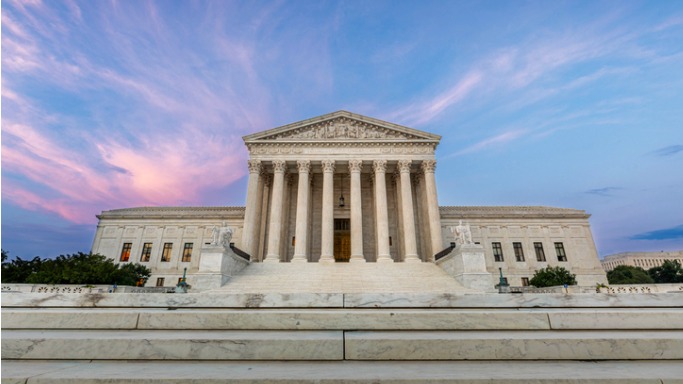Most commentary on the Texas abortion case heard by the U.S. Supreme Court on Monday focuses on the merits of Texas’s abortion policy. But the main issue in the consolidated cases has more to do with federalism than abortion per se.
The key question is whether federal courts have authority to issue injunctions preventing state courts from hearing particular lawsuits. This is because the private plaintiffs in the relevant lawsuits want to challenge Texas’s abortion policy in federal court rather than raising a constitutional defense in state court first.
Generally, a state may not be sued in federal court, even for alleged constitutional violations. This is because the Constitution sets up a system of dual sovereigns — federal and state — and it would violate sovereignty to hale one sovereign in the courts of another. In a 1908 case, however, Ex Parte Young, the Supreme Court created an exception whereby individuals could sue state officials rather than a state itself. Under this so-called Ex Parte Young fiction, lawsuits can be brought against a state official in his or her personal capacity for constitutional violations — though the injunction remedy in effect runs against the state. In other words, Ex Parte Young was a workaround state sovereign immunity that permits lawsuits to enjoin unconstitutional state action. The Ex Parte Young Court was clear, however, that the power to enjoin a state official “does not include the power to restrain a court from acting in any case brought before it.” For a federal court to enjoin another court would violate the very idea of separated powers.
Because the Texas Heartbeat Act outsources enforcement to citizens, the ordinary Ex Parte Young fiction does not work here. There is, in fact, no state official to sue.
Thus the private plaintiffs argue that federal courts may enjoin state court judges, or at least county clerks, from accepting lawsuits, notwithstanding the clear language Ex Parte Young. This argument boils down to an invitation for the Court to create even more exceptions to sovereign immunity. Professor Stephen Sachs explains,
The private plaintiffs’ response is essentially, “hey, Ex parte Young was a fiction, so why not do more fictions?” But just because yesterday’s judges pulled a fast one doesn’t mean today’s judges should too. (If you gained your house by adverse possession, that doesn’t mean you can try ousting your neighbor.)”
The arguments put forward by the Department of Justice are even more limitless. The government claims that it can file suit to enjoin Texas because it has an “interest” in “maintaining the supremacy of federal law.” That gave even liberal justices pause. Justice Kagan seemed to be searching for a way to avoid deciding the United States’ case. And Justice Breyer noted that the government could always bring suit against a state because it always has such an interest. But the federal government cannot veto state legislation before it goes into effect. Such a power would be akin to the proposed Council of Revision that the framers rejected. It would also turn federalism on its head.

